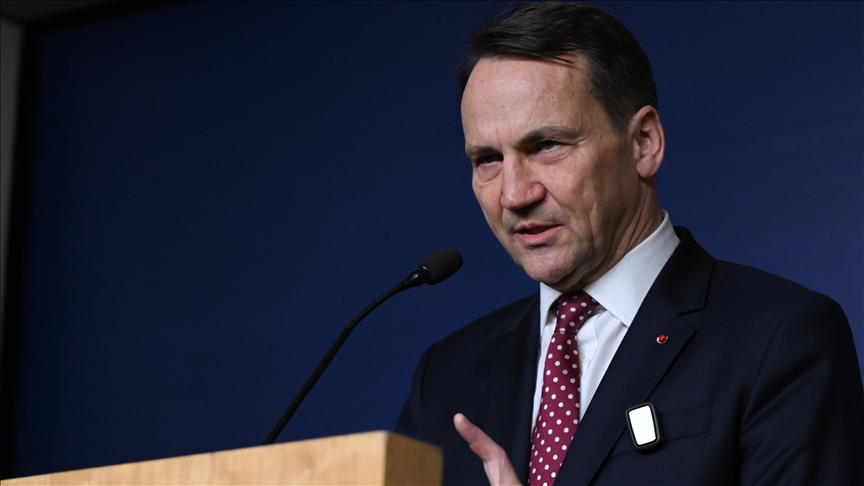Russia may be ready to attack Europe by 2030: Poland’s foreign minister
Radoslaw Sikorski says scenario could occur if Ukraine forced to capitulate and Russia takes over its army
 Polish Foreign Minister Sikorski
Polish Foreign Minister Sikorski
WARSAW
Polish Foreign Minister Radoslaw Sikorski on Monday warned that Russia could be ready to attack Europe by the end of the decade if Ukraine is forced to surrender.
“Russia is currently unable to win against Ukraine alone, so it would not be ready for a broader offensive immediately,” Sikorski told commercial Polish radio TOK FM.”
“But if Ukraine were forced to capitulate, and if Russia took over its army … then this calculation would change,” he added.
Sikorski added that in such a scenario, Europe must prepare for Russia's ability to attack “by the end of the decade.”
His remarks come amid ceasefire negotiations between Russia and Ukraine in Riyadh.
“Please remember that Ukraine is not a passive victim of aggression. Ukraine is fighting and has allies, including the EU and Poland,” Sikorski said.
“The most important thing is for Ukraine to survive as a country that chooses its own leaders, controls the vast majority of its territory and chooses the directions of integration,” he added.
Over the weekend, UK Prime Minister Keir Starmer told the New York Times that he does not trust Russian President Vladimir Putin, saying Russia wants to “win” the negotiations to prepare to attack other European countries.
On Sunday, US representatives held talks with Ukrainian envoys in Riyadh, which President Volodymyr Zelenskyy described as fruitful. The US delegation is meeting Russian officials on Monday.
Last week, Sikorski said Russia would be making “a mistake” if it underestimated US President Donald Trump.
Speaking to Sky News on Thursday, Sikorski referenced Trump’s “mercurial moods and unorthodox bargaining tactics,” saying that the president could yet step up support for Ukraine if he thought that Putin was not being suitably cooperative.
“[Trump’s] approach is unusual... [but] he’s spending his executive time on the issue, so he cares about success,” Sikorski said. “I think he’s giving Putin a chance to exit this disastrous war with face, but if Putin doesn’t take this chance, I think he’s capable of coming on strong.”
Poland debates role in EU’s defense
While Sikorski voiced support for an international peacekeeping mission in Ukraine, he ruled out the deployment of Polish units, citing national security priorities.
“We are a frontline country,” he said. “Our first duty to NATO is to secure the external border of NATO – remember we have 600 kilometers (370 miles) of border with Russia and Belarus, and we have a key logistical hub in Poland, which needs to be protected.”
Last week, Poland’s ruling coalition and conservative opposition clashed in a parliamentary vote over whether to support the EU’s efforts to coordinate a common defense policy.
The opposition warned the move would lead to further centralization in Brussels, damage ties with the US and reduce Poland’s control over its own security.
Prime Minister Donald Tusk accused the opposition of failing the “test of patriotism” and of voting in line with “Russia’s henchmen.” He said the resolution was vital, as it backed Poland’s “Eastern Shield” initiative to strengthen defenses along its borders with Belarus and Russia.
As Poland heads toward its May presidential election, a far-right anti-Ukrainian candidate is polling ahead of the main opposition contender – raising questions about who the opposition might back in an expected runoff.
Since the beginning of Russia’s war on Ukraine in 2022, Poland has significantly increased its defense spending, which last year reached 4.12% – the highest in NATO.








